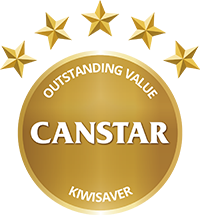Author: Tim Smith
Let’s face it, being young today is hard. Rent is expensive, food is expensive, uni is expensive and the less said about housing the better. But even if the thought of owning your own home one day seems like an unobtainable dream, don’t be put off. Saving and investing is a good habit to get into, and the earlier you begin, the greater the possible rewards.
Start sooner rather than later
Compound interest is a strange and powerful force that, over time, can make a huge difference to your investment. If you start saving while still young, even if it’s only a regular small amount, you have time on your side to grow your money. A little saved now can add up to a large amount years down the line, especially with the help of compound interest.
And thanks to micro-investing apps, such as Stake and Sharesies, you can start your investment journey with only a few dollars.
Related article: A Guide to Micro-Investing Apps For Beginners
What should you do before investing in stocks?
Before you go racing off, it’s a good idea to make sure that your finances are in good shape. While there’s not much you can do in the short term about a student loan hanging over your head, you can make sure that your other bills are paid and your credit card doesn’t have a mountain of debt.
There’s not much point in making a killing on the stock market if the power company is going to shut off your lights. If you’re in a stable enough position that you can afford to set aside a few hundred dollars, you can start having a look at what’s available out in finance land.
Ways to invest
There is a seemingly endless array of ways you can invest your money. No matter your interests, financial goals or ethics, there will be an investment opportunity suited to you. Hiring a financial adviser can also be a great way to identify what’s right for you, but can be pricey.
Related article: Free Financial Advice in NZ: A Guide on Where To Find It
Ultimately everyone’s financial situation is different, and an investment that suits your friend might not be a good fit for you. But here are some of the most common ways to invest and what they offer:
Shares
An oldie but a goodie! Shares are still a big part of many people’s portfolios. Buying and selling shares can be a bit intimidating for a first-time trader, and it generally requires a bit more involvement than some of the other options. However, typically, what it does give you is direct control over your investment, and you can pick and choose exactly what you want to hold.
The mantra of buy low, sell high remains true today, but it’s not the only way to cash in on stocks. You can also receive dividends if the company makes a profit. Buying individual shares is perhaps not the most beginner-friendly method. And you’ll need to consider the risk element involved in this type of investing. However, it’s often easily customisable to your needs and interests.
Exchange-Traded Funds (ETFs)
Bought and sold like shares, an ETF is actually a pool of money from many different investors that is then used to buy shares across a portion of the market. The dividends are then passed on to you, the investor.
ETFs seek to replicate an index. For instance, an ETF may track an index containing a number of the largest stocks listed on a stock exchange, such as the S&P/NZX 50 Index, with the value of its units rising and falling in line with the index.
So, every time you invest in an ETF, you are in effect making a small investment in each of the funds captured in the index. ETFs are a fairly straightforward investment option, and cover a wide variety of market sectors, but can never outperform the index it tracks. You can invest in NZ ETFs, or overseas ETFs, via an online share trading platform.
Related article: A Beginner’s Guide to Exchange-Traded Funds
Managed Funds
A managed fund pools your money like an ETF, but instead of passively tracking an index, it is actively overseen by a manager who tries to make the best return they can for you by choosing what stocks to buy and sell. A managed fund will have a particular strategy that the fund manager employs, like investing in high-risk shares or low-risk government bonds.
The fund manager hopes to outperform the market with their strategy, but there is always the risk they will under-perform. Nevertheless, these funds are another popular investment option for those just starting out.
KiwiSaver
If you’ve a KiwiSaver account, and contribute regularly, you are already an investor! And the responsibility of ensuring you’re getting the best returns is all yours. So take the time to review your KiwiSaver and to compare it with other providers. You’ll soon have a clear picture of whether you’re happy with your choice of KiwiSaver provider and your returns.
Ultimately, the more informed you are as a KiwiSaver investor, the better the decisions you’ll be able to make, which should help you build more funds towards retirement or that all-important first-home deposit.
And this is where Canstar can help. Our KiwiSaver dynamic comparison tables put all the information you need at your fingertips, from average five-year returns to fees.
‘Future you’ will thank you
Diving into the world of investments can seem a scary and confusing thing to do, but it is never too early to start. Consider your interests and needs and how much you have to invest. And while buying a house might be a few years away, you can at least start saving for it, or at least start making your money work harder for you.

Compare KiwiSaver providers for free with Canstar!
Enjoy reading this article?
You can like us on Facebook and get social, or sign up to receive more news like this straight to your inbox.
By subscribing you agree to the Canstar Privacy Policy






Share this article